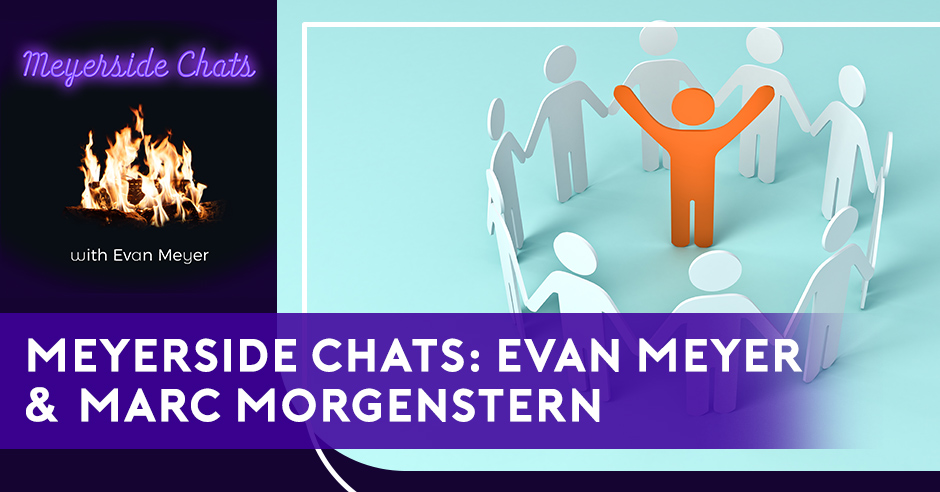
Evan Meyer welcomes Marc Morgenstern to this edition of Meyerside Chats. Interested in any of the civic topics below? Please tune in to Meyerside Chats on the Santa Monica Daily Press.
Past Ocean Park Association (OPA) President, Library Commission Chairman, public safety leader, and journalist, Marc Morgenstern discusses the one-year anniversary of his local online news distribution and his approach to civil and thoughtful community leadership; including, the barriers that make it difficult, how to overcome them.
Meyerside Chats is an attempt to destroy the “us and them” narrative through virtuous community leadership, praising those who lead by example, starting right here in Santa Monica.
—
Listen to the podcast here
Meyerside Chats: Evan Meyer & Marc Morgenstern
We are here with Marc Morgenstern, who is the past president of the Ocean Park Association as you were, as I was. That’s two of us doing a role that is thankless and amazing all at the same time. We’ve seen about everything that’s possible in Ocean Park. We know every street, restaurant, sidewalk, utility, box, you name it.
You’ve also been the chair of the library commission and you were a huge reason why the Public Safety Commission is even a thing here in Santa Monica. You also have an amazing background in journalism. What’s cool is that you’ve used that to create what has become my main source of news now in Santa Monica, which is wonderful. I thought we could talk a little bit about how you have experienced being a part of this community, what it means to you, and what your vision is here with the newsfeed or digital publication.
Once a journalist, always a journalist. Communicating and pulling things together for a community is in my DNA.
You’ve done an amazing job. For me, it has become the main source of news that I read now for Santa Monica because I find it to be impartial, real, short, and easy to read. I get the doses of it throughout the week. You nailed it. Before we can get into that, coming out of your presidency, the neighborhood, what is your feeling in terms of being local mean to you? What does it mean to think globally, and act locally? Why were you the president? What does that mean?
The old phrase, “All politics is local.” All life is local. You read about these casual thoughts, “What makes someone’s life rich?” That’s all about when you walk the street and those interactions you have with people, the shopkeepers, the neighbor, or a person who happens to go to the coffee shop the same time every day that you go that you happen to strike up conversations, but it creates a fabric in a community that makes life worth living.
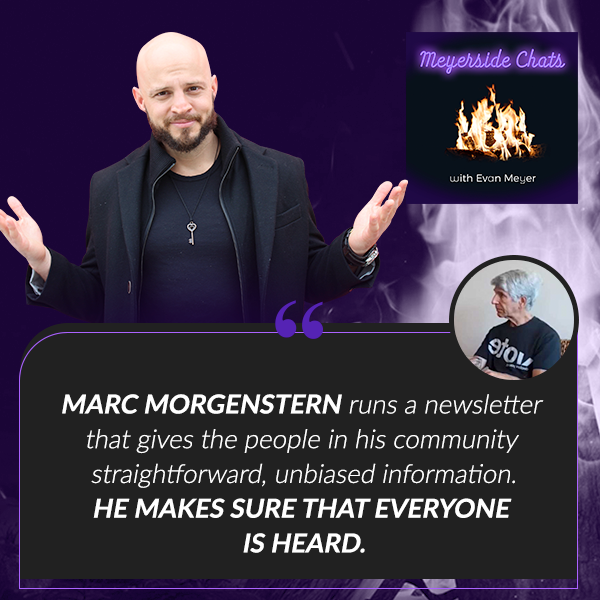
[bctt tweet=”All politics is local. All life is local.” via=”no”]
That’s at the core of all this. That was brought into real relief during COVID. You realize how easy it is for people to be isolated and lonely. Creating a neighborhood or a community takes a little bit of effort, and some sweat and tears sometimes. You don’t miss it until it’s gone, and it was gone. That’s the origin. It goes backward, and forwards.
The origin of this newsletter is a cautionary tale about what a community can be and can’t be or shouldn’t be. One of the pluses of COVID is that it made us also take a look at the block this way, the block that way, behind me, and in front of me, and say, “Who are these people in my life?” Some of them, I don’t know well. Some of them, I barely know at all, and others will be your friend and how you build the fabric of life.
I was having a conversation about that sense of community and being local. Someone was saying, “The community aspect is gone in LA or in Santa Monica.” A lot of people experience a community in a different way because as far as I’m concerned, they’re not invested in their local community. There is community everywhere. It depends on what you’re doing to activate it and if you’re part of the components of the community that make things happen.
There is a core community that makes things happen where you and I know who walked down the street. We know people, experience community, and experience what it means to be local. Know the local merchants, and the owners of the restaurants, understand how things get done in the community, and change gets made. I’ve always felt like it’s been on us as the neighborhood and as past presidents to educate people that that community, that you’re talking about and I’m talking about, exists. You can find it if you get involved.
Also, there’s not this hard and fast line between your neighborhood and your city government, between your being a resident and someone else being a merchant. We were all part of this place. Another thing that COVID did is, all of a sudden, by necessity, the government was cut. There were fewer people working in it. People were furloughed. A lot of things were not being done and could not be done. It became that much more important for people to step off and say, “Neighborhood is not them.” You can’t push responsibility for a place on them.
The government, those other people, the people who have more time than me, the people who have fewer children than I have or are healthier, everyone has a role to play. The irony is that this is when people were more isolated than ever when times were toughest during COVID. The light bulbs went off all over town about, “If I can’t depend on that public works employee to come down the street every day and sweep it up, I’m going to have to sweep up the sidewalk in front of my place myself if I want it to be clean. If I care about it, I’m going to have to step up and do some things to protect this for all of us.”
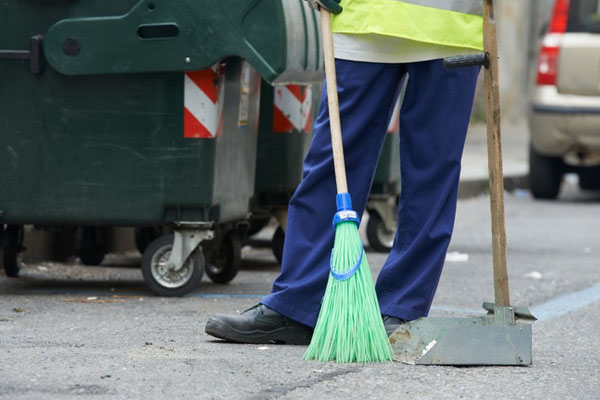
You can extend that same philosophy to doing things for your neighbor.
We all have our blocks and buildings in our little communities. It’s easy to not have interaction, maybe not even know who your neighbors are. There are four walls around everybody. People were locked down, but somehow when people poke their heads out, saw their neighbor, and met their neighbor in the hall, started venturing out, and realize this is something that you need to cherish and you need to work out or try out. It won’t happen all by itself.
It takes goodwill and a way of saying, “If I’m going to make the effort to reach out, I’m going to get it back. If I don’t get it back, I’ve tried and I’ve reached out. I’ve tried to make things an ounce better by making eye contact, saying hello to somebody, or frequenting a business that’s struggling.” All these little hour-to-hour, minute-to-minute decisions we can make keep us on the right side of what’s civilized and not civilized. We saw during this time that the line between being civilized, being a neighbor, or being a community is not guaranteed. It can get funky there if you don’t pay attention and if everyone doesn’t do their part.
We’ve seen it before COVID, during COVID, and even now in the semi hopefully, post-COVID era. It’s hard to tell, at least after the initial COVID. Community and democracy are fickle. The line is not always clear. It’s funny when I got involved in it, it was always like, “I’m doing this because I want to be a part of the change that I want to see in my community.”
If you don’t want to be a part of the change or be a part of the effort to help the community become its best self, it’s hard to help from the side.
You earn the right to complain. You live in America at least.
I understand. People have different points of view and not only is that okay, but that’s great. You have to value that to moderate that and keep it on the rails. There is a certain set of rules about civility, assuming goodwill, trying to be positive, and trying to look for the best in people’s investment situations. These are rules of the road that when people are under stress and look at the stress we had, it’s health stress, economic stress, and mental stress. It’s easy to lose some of the basics and stray outside the rails. That’s why whatever we can do individually, also in groups like the Ocean Park Association, and the other neighborhood groups to help keep us together is what’s key.
How do you think that changed between that before COVID, during COVID, and now period? How do you think that has changed? Has it always been that way or do you see any difference?
What we found and we being open and being people of goodwill in this particular community, the Ocean Park Community is that people are hungry for connection. After the lockdown and the shock of all this, they realize how much they’ve missed each other and how much they needed to value each other. We create a Zoom forum every Wednesday call and we’ve been doing it for a few years now to give people a place to see friendly faces, say what’s on their minds, hear what’s going on, and find some commonalities and connections. Upwards of 80 people showed up in this Zoom comments to do that. It showed what they needed. Not that everybody needed exactly the same thing, but we designed that to help people find whatever they needed.
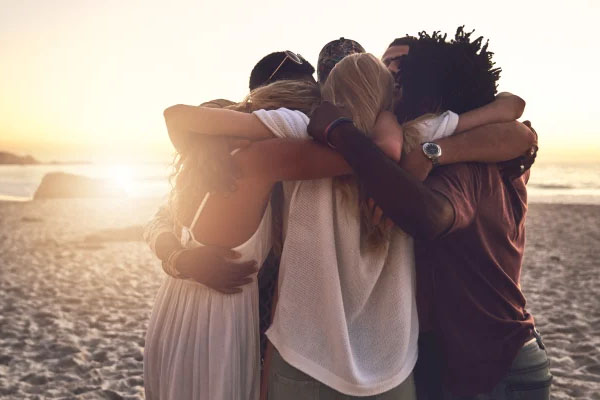
The difference is that people had to find new ways. They were shocked out of their normal behavior to find new pathways and almost rewire themselves during COVID. They’ve now found these new pathways that hopefully can not just stick around but get stronger and viler over time. I’m a believer in “Don’t waste a good crisis.” Not that every crisis is good, but you could say that it shocks everybody out of the same old, and hopefully, they come to appreciate what’s good here or anywhere and the role that maybe they need to play in that.
There are always silver linings to things as hard as they are. The outdoor seating phenomenon that came out of COVID, but why wouldn’t we have outdoor seating forever? We’re in Santa Monica.
Al fresco dining, the Ocean Park Community, particularly Main Street became the laboratory for that. We were the first ones to work closely with the city and merchants to make that a reality and claim public space in a different way almost by necessity. There were fewer cars and people were working at home. There was this opportunity to say, “Let’s look at what we could do differently. What if we take some parking spaces and turn them into parklets? What if we expand bike lanes? What if we realized that dining outside is a privilege, it is almost a right?” When you think of how much public space is given to vehicles and traffic, and unless we claim it for ourselves, it’s not going to be humanized. It’s going to be vehiclized.
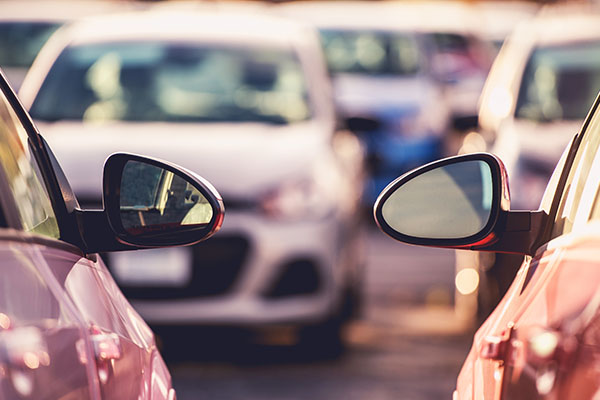
That was another output of COVID that through the Al Fresco Program and now through sharing an open Main Street which does some limited block closures on selected weekends. We’re not only reclaiming the public space, but we’re doing a way to support the neighborhood, and letting neighbors find neighbors and be neighbors. Also, proving to people how you can make some changes to the infrastructure of the space.
It can make it more neighborhood, easier to interact with people, and support businesses because it’s all part of the fabric of how we live. You eat out, buy stuff, and see art on the concrete barriers. That’s another way that we took this scape and tried to make it more human, fun, and artful by highlighting. How many times or hours a week did you and I talk about how are we going to do this? How can we find the local artists who are going to celebrate the community space and the neighborhood, not to mention honor the incredible artistic history of these streets here? There was another one of those cases where the city bureaucracy rallied to support.
It was impressive. I remember what impressed me when I started seeing what happens when you give creative people, entrepreneurs, and small businesses tools. For example, we put the barricades out and we saw that it looked like the side of a freeway. “What do we need to do to make it not look like that?” We first painted them all blue and put the art on them, but what’s even cooler is that the businesses on Main Street started using these barriers as protection which is why they were there originally.
They started using them to frame protectors that frame the wooden structures that they build around them to support the patio area. They started between the art and the protective element and the wooden structures. They didn’t even look like a freeway anymore at all. They didn’t even look like cement barriers.
What was crazy good about it is all the creativity that followed. You talked about all the artistic creativity of how you take this horizontal canvas of concrete and make it beautiful, cool, and fun, and then around it is the incredibly creative ways that the merchants used wood, plants, and other stuff to make these attractive, welcoming spaces. If you walk down the street, it’s amazing.
It’s greener than it’s ever been. The street has more greenery without help from the city.
What was beautiful about the role the city played was that they set up certain rules and licenses you had to have to put up structures so that they’re safe and no one’s hurt. There are all kinds of safety things and realistic ways to keep everything on the rails without being onerous about it. They did all that with incredible pace and speed. That gets to one of our favorite words that you and I talk to all the time when we walk and talk. That’s like, “How do you innovate? How do you make change happen? How do you get people to try new things?” Some of which are going to work great and some, you’re going to say, “Nice try. Let’s try something else.”
How do you take the appropriate risks without putting yourself too far into the deep end but still allowing for innovation? I do think COVID allowed for that with small businesses. They showed up in ways that beautified the street that we couldn’t have imagined. That’s because there were creative people who gave them lines to stay within and most of them stayed within for the most part, but even the ones who didn’t, usually did it in a tasteful way that elevated Main Street to a place that I don’t even think I’ve ever seen.
It is more active now than I’ve ever experienced and I’ve been here for a long time. It’s amazing that it took something like COVID to put creativity in the hands of small businesses and turned the street into a place that is more pedestrian-friendly and bike-friendly. To see that we’re there now is wonderful. There are QR code menus. It’s amazing. We can do payments on the phone. I walk now and tap on everything. It’s easier to pay small businesses on the phone than it is to pay at big chain stores.
It’s like the watchword of every improvisation class or one of those prominent schools. All these people that we’re talking about are saying yes as opposed to saying no. No, in general, is the easiest thing to say. Every infant can say no. I say no all the time. It’s easier to shut the door. You don’t have to worry about it anymore. Saying yes opens possibilities and possibilities are scary sometimes.
[bctt tweet=”Saying yes opens possibilities while saying no shuts the doors.” via=”no”]
Saying yes can mean, “We’ll give you a 10-square foot space to try your idea. Try it. Let’s see what you come up with and go for it.” We don’t have to restrict the innovation that people can have in communities. I do believe in that. Once we enable that, anything’s possible.
The saying yes thing hopefully is contagious. That’s the hope. That’s what we’re all trying to do.
In this timeframe, you’ve been innovating yourself and validating a real need.
That need is trustworthy information. It’s the era of fake news. People are skeptical about everything flowing their way and rightfully so. We get a flood of it online and offline. How do you evaluate it? With your precious time, where did you get your information? The idea was that we created this newsletter, which is a three-time news digest. We started this conversation by talking about living locally and it’s very hyperlocal. It’s about what’s happening in the 90405 and surrounding it as well as the city at large.
This has taken off. We now have about 2,000 people receiving this every day and it’s growing. People are signing up all the time. An email that says a new city manager subscribes to the OPA Update. We try to treat people like they’re intelligent human beings. If you can give them straightforward, unbiased information, and links to go into more depth on it, they are smart enough to make good decisions.

You did an amazing job. As I said, it’s now my main source of local news. I trust that it’s accurate and impartial and you do a great job at not leading people towards a bias. It’s so hard when I read the news these days. Sometimes I’ll go to both sides of the news and look at the headlines and see how both of them are framing things exactly the opposite with an intention. There’s a motive there.
I’m like, “Why aren’t they just giving me the news?” You compare them and one’s like, “This person destroys this person in a debate.” This is like, “The other person destroys the other person in a debate.” You’re like, “Clearly, you are creating a bias using adjectives often strong verbs that would show that one party is trumping another.” No pun intended, but how do you make sure that the way that you frame things doesn’t include our tendencies to have opinions about things in the subject lines and the description of what’s going on?
I’m not perfect about it. We do our best. The idea is that you strip down the language, to begin with, remove the qualifiers and try to present facts, and ask yourself, “How do we know that? What’s the fact?” Facts do have verification behind them. There is a difference between a fact that is verifiable preferably from multiple different places, definitive places, official places, and hearsay or things overheard like from the next door, for example. It’s an ongoing effort.
We have an interesting time here that if you ask the average person, “Is Santa Monica like some of the national discourse or lack of discourse if they’re dumb?” as you pretty well described. Most people would say, “No, we’re all good, thoughtful, and fair folks here.” When you come beneath that, there is some of that highly bifurcated and highly separated side versus side discourse here. If we could not encourage that by being as scrupulous as possible and being fallible human beings, then we could not encourage or inflame, that’s a good thing. We try to do that. Unless reporting is very careful, it’s easy to conflate homelessness with a crime.
There is a fair amount of crime associated with homelessness, but walking down the street, pushing a cart while looking at shelves, or even talking to oneself is not a crime. It can make people uncomfortable and can be offensive to some people, but it’s not a crime. It’s easy to not keep all this in perspective because back here in the brain stem, fear speaks loudly and it’s easy to make that fear contagious.
It’s biologically intended to do so, also.
The idea of fairly covering crime and keeping it in a modulated place is one of the things we try to do while not hiding it under a stack of papers.
It’s wonderful. It’s changing the game of even how to acquire this information. It’s so funny to me that people will follow federal politics, international politics, and everything that gets thrown at them on the news. They’ll share it on social media, believing about whatever’s handed to them often. It’s funny because the purest news and you do even the purest of the purest, but it’s purer at the local level. Democracy exists for real at the local level where you can feel it and you know your one vote counts for things.
I don’t know if enough people do know that, but making change is quite easy if you get involved in your community. It’s right there at your doorstep. In a sense, to study the world’s news as we call it a fact, but not know anything about what’s going on in your local community, how trash gets picked up, why it is the way it is, recycling, electricity, and doing anything locally that you see people doing and how change is made. It’s strange to me that most people don’t seem to know how their own community works.
It’s amazing. These city council meetings go long into the night and I completely understand that most people have kids, jobs, and stuff to do. They sit down hopefully and have dinner, and don’t watch into the wee hours. What’s amazing some of the time is to see a local law take shape before your eyes. Whether I agree with the outcome or not, I am gobsmacked by what an amazing process it is to have our elected representatives trying to do their best.
There are people of goodwill around here. A lot of them happen to be elected officials, appointed officials on commissions, city employees, and everyday folks who are taking that goodwill and trying to spread it around and make things better. Representative democracy can be a beautiful thing because if you have too many people in a room, nothing gets done. That was invented to try to get things done and it could be a painful process, particularly now that there are all these highly complex and gnarly issues that we’re under.
Homelessness is one. It has so many dimensions. It’s so tough. There are so many different kinds of homelessness. There are so many difficulties, enforcement, and treatment, so on. That’s a huge one. This idea of making Santa Monica a place where people who work here, in the government, or in Silicon Beach can afford to live here by having enough housing, let alone people who have fewer resources and need to be subsidized and helped with affordable housing. It’s a gnarly problem that is statewide and everybody’s struggling with it. We happen to have a tall order here.
I read something that in Ocean Park, 11% of the people are below the poverty line. I didn’t know that. We think of ourselves as a wealthy community in so many ways. We are highly wealthy and blessed, but these activities to shine a light and spread around in all kinds of ways are important and hard to do. That’s a part of this housing thing. It’s easy to strike villains there where developers or people in single-family houses are villains, or approaching these tough ones without labels and calling people names with goodwill becomes that much more important.
You and I have talked about this one thing. Sometimes when I read your publication, I feel like there’s always this bit of warmth and softness that tries to respect everyone in some way. We’ve dealt with this by running the board meetings with the OPA where it feels like people want to fight sometimes.
The antidote is using the words respect and trust. Once those get worm holes in them, it’s hard to protect them and stop the rock. The only anecdote is all the things we’ve been talking about, yes, respect, goodwill, and fidelity. It sounds old-fashioned, but it’s the only way. Good people can disagree. They should disagree. Listen, think, and make each other better.
[bctt tweet=”The antidote for hate is respect, goodwill, and civility.” via=”no”]
Being part of the meetings and stuff, you always did that well. Be able to make sure all people are heard and still able to get to the end of the agenda item in a peaceful way. I do think that carries through in your writing.
People get angry fastest when they don’t feel like they’re being heard. It goes from 0 to 90 immediately. Generally, that puts the brakes on it right away. Hopefully, we can all do that in our everyday discourse and conversation, realizing that when people get up to the next red and their faces flushed, pausing and listening sounds naïve, but it works almost every time.
People want to be heard. They want to know that their thoughts and feelings are worthy. There’s still a lot of work to do locally, nationally, and internationally. Let people be heard without calling them names. Name-calling is a weird thing that adults do.
It’s the playground stuff, but it didn’t work then too well. It doesn’t work now.
It’s so weird. It doesn’t work too well for adults either. It’s those people with mean names.
The phrase those people or them that says it all to eliminate those phrases from the language would be a good thing and a good win.
What do you think is the future of the newsletter when you think about your why in doing this? Usually, people of high moral standing and highly productive members of society want to contribute to something meaningful, and this newsletter to me surely is that. How do you see your values getting translated into the community?
I hope it can be a hearth where people can share information and get more interactive where they’re learning from the newsletter. We have a virtuous circle where we’re providing thoughts, comments, tips, and all that stuff to make it more useful for them. It comes down to being useful, but a lot of it is making people feel smart and not alone. It’s simple as that. I’m trying to avoid sounding too cosmic or high and mighty about it. It’s just a little newsletter, but it has this feeling of mission to me to provide a little bit of help and information through your day, and a little bit of, “I’m ready to go. I have a sense that’s going on.” If I could provide that, that’s great.
There’s always a little smile in there.
That’s important, too. Everybody needs to find something like that where they can figure out something to save every day, some kindness every day, and some contribution every day. That’s the goal. If we all did that and did it better, and I try every day to do it better, we’ll be a lot better off. This newsletter generates no money. It has no advertising and the subscription is free. We hope people will become members of OPA to help subsidize it.
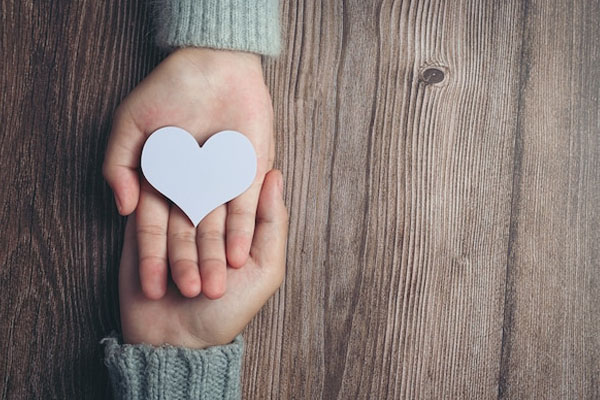
It’s about the community and the people that OPA cares about. I hope people will subscribe and if they feel that it’s valuable for them, they can donate a little bit, a few dollars to OPA, or become a member of OPA, but more than that, contribute to the community at large by their rations, goodwill, and outreach to their neighbors.
I feel that if everyone would think a little bit more about how you can help a neighbor thing once a day or something that you care about in your community, invest that time instead of watching the news, go do the thing. Instead of watching, sitting on your couch, and going, “This is frustrating,” do the thing that you want to see done. Go and make the phone call. Pick up the piece of trash across the street. Don’t wait for someone else to do it. Building those habits helps you become a real civic player.
I didn’t watch this as a kid, but I’ve become such a Mister Rogers fan because he embodies this whole thing. None of us could be him. None of us could even come close to being him. That was an amazing man, but that a little Mister Rogers sitting on our shoulder, it’s not so bad.
It’s a good angel. Won’t you be my neighbor?
Neighbor, thanks for getting us together here.
This was awesome. Another example of how people can do something to slow things down is to put up speed bumps. We have a good friend Mr. Jeff Jaro, who got a stop sign in our neighborhood that was bothering him. He thought it was important to slow traffic down and he got a stop sign. He built up enough support for that and he made it happen. It made the street safer in one man’s vision for the community to make a change in people’s lives.
Not to mention, he’s Mr. 4th of July parade. We all hope we’ll have that.
To infinitely long friendship and to neighbors. That concludes our conversation. Thanks for joining us.